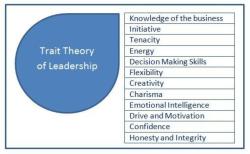Why do we talk to ourselves to avoid silence?
Self-talk, the act of talking to oneself either silently (inner dialogue) or aloud, is a common and natural human behavior. People engage in self-talk for various reasons, and the motivation to avoid silence is just one of them. Here are a few reasons why we talk to ourselves:
Cognitive Processing: Self-talk often serves as a way for individuals to process information and solve problems. When faced with a complex task or decision, people may engage in self-talk to clarify their thoughts and weigh the pros and cons. In this context, self-talk helps organize ideas and make decisions.
Self-Regulation: Self-talk is frequently used as a tool for self-regulation. When people are trying to control their behavior, motivate themselves, or stay focused, they may use self-talk to provide guidance and encouragement. For example, athletes often use positive self-talk to boost their confidence and performance.
Emotional Expression: Self-talk can also be a means of expressing emotions and thoughts. It serves as a way to reflect on experiences, emotions, and situations. Talking to oneself can provide a safe and private space for processing feelings and experiences.
Social Interaction: People may use self-talk to practice or rehearse conversations or presentations. Engaging in self-dialogue can help individuals prepare for social interactions and anticipate responses.
Avoidance of Silence: Silence can be uncomfortable for some people, as it leaves them alone with their thoughts. Self-talk, whether conscious or not, can help fill the void of silence and provide a sense of companionship. It can serve as a distraction from negative or intrusive thoughts.
Habit and Comfort: For some individuals, self-talk is simply a habit they've developed over time. It can provide a sense of comfort and familiarity, similar to having an internal conversation partner.
It's important to note that not all self-talk is verbal or audible. Inner dialogue, which takes place entirely within one's mind, is a common form of self-talk that many people engage in without even realizing it. While self-talk can be a valuable tool for problem-solving, self-regulation, and emotional expression, excessive or negative self-talk can have a detrimental impact on mental health. It can contribute to stress, anxiety, and self-doubt.
Individuals who find themselves talking to themselves excessively or in a negative manner may benefit from mindfulness and self-awareness techniques to better understand and manage their self-talk patterns. Additionally, seeking support from a mental health professional can be valuable in addressing any underlying issues related to self-talk and its impact on well-being.
Talking to Ourselves: Exploring the Psychology of Self-Talk
Self-talk is the inner dialogue that we have with ourselves. It can be positive or negative, conscious or unconscious. Self-talk can have a significant impact on our thoughts, feelings, and behaviors.
Positive self-talk can help us to feel confident, motivated, and optimistic. It can also help us to cope with stress and challenges. Negative self-talk, on the other hand, can lead to feelings of doubt, anxiety, and depression. It can also sabotage our goals and dreams.
The Role of Self-Talk in Coping with Silence and Solitude
Silence and solitude can be challenging for some people. However, self-talk can be a powerful tool for coping with these experiences.
Positive self-talk can help us to stay calm and centered when we are alone. It can also help us to reflect on our thoughts and feelings, and to develop a deeper understanding of ourselves.
For example, if we are feeling lonely, we can use positive self-talk to remind ourselves that we are loved and valued by others. We can also use self-talk to focus on the positive aspects of our lives, and to appreciate the beauty and stillness of the present moment.
The Connection Between Self-Talk and Cognitive Function
Self-talk is closely connected to cognitive function. Our thoughts and beliefs can have a significant impact on our self-talk, and vice versa.
Positive self-talk can help to improve our cognitive function. It can boost our concentration, memory, and problem-solving skills. Negative self-talk, on the other hand, can impair our cognitive function. It can lead to difficulty concentrating, remembering information, and making decisions.
Strategies for Using Self-Talk to Stay Focused and Motivated
When we are feeling unfocused or unmotivated, self-talk can be a helpful tool for getting back on track.
Here are some strategies for using self-talk to stay focused and motivated:
- Set clear and achievable goals. When we have clear goals in mind, it is easier to stay focused and motivated.
- Break down large goals into smaller steps. This will make the goals seem less daunting and more achievable.
- Use positive self-talk to remind yourself of your goals and why you are working towards them.
- Visualize yourself achieving your goals. This will help you to stay motivated and focused.
- Reward yourself for your progress. This will help you to stay on track and motivated.
Self-Talk as a Tool for Problem Solving and Decision-Making
Self-talk can also be a helpful tool for problem solving and decision-making.
When we are faced with a problem, we can use self-talk to:
- Identify the problem. What is the exact problem that we are trying to solve?
- Brainstorm possible solutions. Come up with as many possible solutions as you can, even if they seem silly or unrealistic.
- Evaluate the possible solutions. Consider the pros and cons of each solution.
- Choose the best solution. Choose the solution that you think is most likely to succeed.
- Take action. Implement the solution that you have chosen.
Self-talk can also be helpful for making decisions. When we are faced with a decision, we can use self-talk to:
- Identify the decision that we need to make. What is the exact decision that we need to make?
- Gather information. Gather as much information as you can about the decision.
- Consider your options. Weigh the pros and cons of each option.
- Make a decision. Choose the option that you think is best.
- Take action. Implement the decision that you have made.
Self-talk is a powerful tool that we can use to improve our lives. By using self-talk to stay positive, focused, motivated, and problem-solving, we can achieve our goals and live our best lives.













